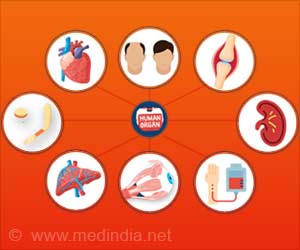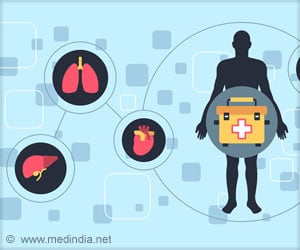A proposal to introduce a private member’s bill, which would allow the inclusion of all adult citizens of the country in a national organ donation register is on the cards. Donation and Transplantation of Human Organ Bill, 2020 could be the answer to India’s organ donor shortage.
Highlights:
- MP Varun Gandhi announced that he will introduce a private member’s bill to promote organ donation
- The proposed bill is likely to be introduced in the upcoming monsoon session in Lok Sabha
- The bill will allow for automatic inclusion of all adult citizens in a national organ donor registry if passed
- The ‘Donation and Transplantation of Human Organ Bill, 2020’ could be the answer to India’s organ donor shortage
Read More..
Organ donation in India has been heavily reliant on living donors so far and a change in policy would encourage optimal utilization of the potential brain dead donors.
Currently, India follows an opt-in system that allows any adult above the age of 18 yearsto voluntarily register themselves as organ donors if they wish to donate organs after their death. However, it is generally believed that a lack of awareness about organ donation and failure to communicate a willingness to the family has resulted in very few donations taking place in the country. Under the presumed consent scheme all adult citizens are deemed to be organ donors after death and can choose to opt-out from donating.
Countries like Spain and Croatia,which follow the opt-out system have highly encouraging rates of 46.9 and 38.6 per million respectively. England has also recently adopted the presumed consent system effective since May 2020. This was following the success witnessed by Wales, which chose to shift to opt-out in 2015 and has seen a rise in consent rates from 58 percent to 75 percent.The United States which follows opt-in has also been deliberating a shift in policy.
While a few experts around the world are still debating if opting out of presumed consent is the most effective way to overcome organ shortage,there are others who are of the view that this process of consent is infringement by the state on an individual’s rights. The proposed bill will certainly open up a debate on this subject; however, it isunlikely to be taken further, given the complexity of the subject and India’s differential health infrastructure which would not allow anyone who is brain dead in a village to become an organ donor.
Commentary by Dr.Sunil Shroff, Editor, MedIndia& Managing Trustee, MOHAN Foundation – an NGO that promotes Organ Donation
Presumed consent or opt-out system would only work in countries that have the following:- A uniform standard of healthcare
- Trust in the healthcare system
- System in the hospitals for brain death identification, certification and maintenance
Spain, which is often lauded for the highest donation rate in the world, had improvement in its donation rate for ten years after passage of the presumed consent or opt-out system. The improvement came about only after proper systems were set up in intensive care units (ICU) for brain death identification, certification and maintenance. The architect of this change was Dr.RMartinez whohas often confessed that it was not the presumed consent that worked in increasing the donation rate,but the systems that were set up in the ICU’s that have helped increase the donation rate in Spain.In fact, there is no opt-out register as such in Spain and consent from family is still warranted before donations take place.
We fail in India in implementation; the current transplant law is good, but has no teeth as the appropriate authority that is supposed to implement the above provisions and also work as an oversight committee is seldom in a functional state and mostly exists only on paper. It is usually lead by a junior level clerk and acts only to review papers for transplant license and send doctors to hospitals for inspection.
Taking all these factors into consideration, the government needs to implement all the provisions in the current law more effectively rather than introduce presumed consent concept at this stage of the program. A consent process that could only widen the trust deficit has marred our healthcare system.
References:
- Varun Gandhi To Float Bill Making Organ Donation "Compulsory" For Adults - (https://www.ndtv.com/india-news/world-organ-donation-day-bjps-varun-gandhi-to-float-bill-making-organ-donation-compulsory-for-adults-2278908)
- Put all adults in organ donor registry: Varun Gandhi to move Bill - (https://www.tribuneindia.com/news/nation/put-all-adults-in-organ-donor-registry-varun-gandhi-to-move-bill-126041)
- Varun Gandhi to bring private member bill for registration of all adult citizens as organ donors - (http://timesofindia.indiatimes.com/articleshow/77521971.cms?utm_source=contentofinterest&utm_medium=text&utm_campaign=cppst)
- Opt-out Organ Donation Could Affect Transplant Waitlists - (https://www.medindia.net/news/healthinfocus/opt-out-organ-donation-could-affect-transplant-waitlists-190747-1.htm)
- All adults in England to be deemed organ donors in 'opt-out' system - (https://www.theguardian.com/society/2020/may/19/deceased-uk-adults-to-be-deemed-organ-donors-in-opt-out-system)
Source-Medindia










